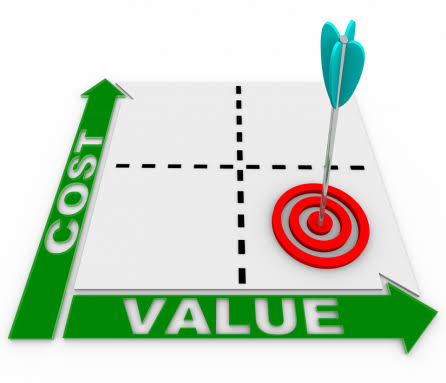Name the most expensive personal item you’ve ever purchased (not your home or car).
In today’s world, where consumer choices abound and marketing is more persuasive than ever, it can be challenging to make purchasing decisions that align with our needs and budgets. One guiding principle that can simplify this process is focusing on “value for money.” When we prioritize value over the initial price tag, nothing ever truly feels expensive. Let’s explore why value for money is the key factor in making purchases and how it transforms our perception of expense.

Understanding Value for Money
Value for money isn’t just about finding the cheapest option; it’s about weighing the benefits, quality, and longevity of a product or service against its cost. A product that offers exceptional performance, durability, and satisfaction can be deemed valuable, even if its price is higher than its counterparts. Here are a few reasons why value for money should be your primary consideration:
1. Long-Term Savings: Investing in a high-quality product that lasts longer often saves you money in the long run. Frequent replacements of cheaper alternatives can end up costing more.
2. Enhanced Experience: Products that offer superior functionality or comfort can significantly enhance your experience, making them worth the higher price.
3. Sustainability: Quality products tend to be more durable, reducing waste and the environmental impact associated with frequent replacements.
4. Peace of Mind: Knowing that you have a reliable, well-performing product gives you peace of mind and reduces the hassle of dealing with malfunctions or poor performance.
Personal Reflections on Value for Money
When asked about the most expensive thing I’ve ever bought, my answer often surprises people: my laptop and mobile. These might seem like significant expenditures at first glance, but for me, they were not expensive because they served their purpose exceptionally well.
Laptop: My laptop was a considerable investment, but it has been my trusty companion for years, facilitating my work, entertainment, and communication needs without a hitch. The performance, reliability, and durability it offers have made it invaluable to me, and I believe it was worth every penny.
Mobile Phone: Similarly, my mobile phone might have been costly upfront, but its seamless functionality, high-quality camera, and robust features have provided immense value. It keeps me connected, organized, and entertained, proving its worth time and time again.
Making Informed Decisions
To ensure you’re getting value for money, consider these tips:
– Research: Read reviews, compare products, and seek recommendations to understand what you’re paying for.
– Prioritize Needs: Focus on what features and qualities are most important to you.
– Evaluate Total Cost of Ownership: Think beyond the initial price to maintenance, upgrades, and longevity.
– Seek Warranties and Support: Products with good customer support and warranties often add to their value.
Conclusion
In the end, nothing feels expensive when it delivers value that meets or exceeds your expectations. By focusing on value for money, you not only make smarter purchases but also ensure greater satisfaction and long-term benefits. So the next time you’re faced with a purchasing decision, remember to weigh the true value of what you’re getting.
Remember, value is about more than just cost—it’s about the overall benefits and satisfaction that a product or service provides. Happy shopping!
Relevant Links:
– Consumer Reports
– Wirecutter by The New York Times
– TechRadar Reviews
Follow our blog.








Share your views on it